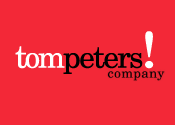From the earliest days of the Web, it was obvious to many of us that the impact of the internet on education was going to be huge. An early inkling of the tectonic shift that was underway was the MIT (Massachusetts Institute of Technology) Open Course Ware project (http://ocw.mit.edu/index.htm). Initiated in 1999, the project provided materials for its first set of undergraduate courses free on the Web in 2002. By November 2011, there were 2,080 MIT undergraduate and graduate level courses available online.
MIT’s groundbreaking initiative has been followed up by many other academic institutions, and the body of work that has been created is a valuable resource for people all over the world.
This open sharing of intellectual property has moved up to a completely different level with the advent of MOOCs (Massive Open Online Courses). Pioneered in 2007 by David Wiley of Utah State University, MOOCs reached a turning point in 2011 when a course on artificial intelligence enrolled a staggering 160,000 participants!
MOOCs are now available on a wide variety of subjects and typically run for about eight weeks. MOOCs are (so far) free of charge, and access is unrestricted. MOOCS exploit the latest Web technology and accommodate a wide variety of educational content, delivery media, and learning support mechanisms. New organizations such as Udacity, and Coursera have sprung up alongside Carnegie Mellon’s OLI, Harvard’s edX project and MIT’s OCW to help fulfill the burgeoning worldwide demand for online education.
I recently enrolled in a MOOC delivered by Professor Kevin Werbach of Pennsylvania University. The subject is Gamification—defined as the use of games design techniques and games elements in non-games contexts. The professor is using feedback from the participants in a book he is writing on Gamification. So, he benefits from the interactive nature of the Web experience along with his students, and he is no doubt picking up plenty of feedback from the 10,000 participants who are still active out of the 77,000 who originally signed up for the course. This 10,000 out of 77,000 might seem disappointing, but program monitoring shows that around 44,000 people are accessing the two hours per week of video content but not submitting the course work.
I’m finding the MOOC learning process much more engaging than I had expected. There is sufficient assessment, albeit of a fairly mechanical level, to help me consolidate my learning. I feel that I’ve picked up something useful that I can apply in my work. I haven’t ventured far into the community forum of the course, as hacking my way through thousands of posted comments doesn’t feel like a productive use of my time. Maybe next time.
Critics of MOOCs are dismissive about the educational value added. They point out that there’s no credible qualification issued at the end of a MOOC. A “certificate of attendance” issued to participants who complete the course may not hold any weight in getting a job or earning credit toward more formal education. Critics say such mass access education is never going to provide the quality or intensity of focus that can be gained in a tailored academic course. Perfectly valid criticisms, perhaps, but personally I think they miss the main point.
These early manifestations of open courses are an indication of a shift in the balance of power away from educators being in control to learners taking control of their own personal development. I see these open courses a bit like a smorgasbord of educational offerings. They offer a whole new menu of exciting courses for students who want the scope to pick and choose what they spend their time learning. Life-long learning becomes a viable option for people with the resolve to do the work and access to a decent broadband service!
What will happen if providers start to charge for course admission remains to be seen, but for the moment, as an ongoing experiment in educational flash mobbing, it makes for fascinating watching.
Here are a few MOOC courses to take a look at….
Coursera: Developing Innovative Ideas for New Companies https://www.coursera.org/course/innovativeideas
Udacity:How to build a blog http://www.udacity.com/overview/Course/cs253/CourseRev/apr2012
Open Learning Initiative:Introduction to Psychology https://oli.cmu.edu/jcourse/lms/students/syllabus.do?section=2fb6b04380020ca60176fb99ff65d39c
Blog post first published on tompeters.com.


